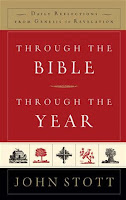The Prophets, along with priests, sages and scribes, were another order of ministry in ancient Israel. Like the other orders, their ministries revolved around the covenant - its exposition, maintenance and execution. The 10 Commandments was the core of the covenant and was exemplified in the rest of the Hebrew scriptures. Unlike the other orders however, the prophets alone functioned as a "check" on royal power and prerogative. Unlike the nations around them, Israel's king did not have absolute power. His word was not law. He was not "son of God" - at least in the sense of the Pharaohs. Instead, in Israel, the LORD God continued to govern Israel through the covenant. Even the king was subservient to the covenant and it was the job of the prophet to remind him of this fact. This is precisely what Nathan was doing when he rebuked David for having committed adultery with Bathsheba (2 Samuel 12). During the divided Kingdom and exile, the Prophets loom large on Israel's spiritual and social horizon. To digest this "largeness", it is important to make some distinctions about the various prophetic functions, specifically we will distinguish between: the prophetic corpus, tradition, experience and the prophetic office.
A. Prophetic
Corpus
The "Early Prophets" refer to the biblical story contained in Joshua through 2 Kings. Christians refer to this part of the scriptures as the "historical books," which is something of a misnomer. This is canonical - or prophetic - history and reflects the interests and concerns of the prophets. This is prophetic writing in the form of historical narrative. Because these books comprise a narrative unit, there is growing scholarly opinion that it took its final editorial form during the exile, possibly under the knowing eye of Jeremiah, or Baruch, his scribe. The book of Jeremiah and 2 Kings ends with the same historical account of the fall of Jerusalem (compare Jeremiah 52 and 2 Kings 24:18-25:30).
The "Latter Prophets" refer to the biblical messages within the books from Isaiah to Malachi. Again this is something of a misnomer, because some of these "later prophets" prophesied before the "history" was written or even before it occurred. These later prophets are distinguished not so much by chronology as much as by their preaching, which has been preserved in this corpus of books. It is probably best to think of them as anthologies of their "greatest hits." Sermons that made them (in)famous and got them either imprisoned or exiled.
The "Latter Prophets" refer to the biblical messages within the books from Isaiah to Malachi. Again this is something of a misnomer, because some of these "later prophets" prophesied before the "history" was written or even before it occurred. These later prophets are distinguished not so much by chronology as much as by their preaching, which has been preserved in this corpus of books. It is probably best to think of them as anthologies of their "greatest hits." Sermons that made them (in)famous and got them either imprisoned or exiled.
B. Prophetic
Tradition
There are two parts of the prophetic tradition roughly corresponding to the prophetic corpus. There is the "written prophets" which consists of the public ministry of Elijah and Elisha, who ministered during the divided Kingdom. Their stories are found in 1 and 2 Kings. There are also the "writing prophets" which comprise Isaiah through Malachi. The writing (or their speeches) show deliberate signs of borrowing and reflection on the written traditions. They are expositions of the prophetic history, helping Israel to understand how defection from the covenant had severe social and theological repercussions. Their message in a nutshell: "we don't break the covenant as much as we break ourselves against the covenant."
There are two parts of the prophetic tradition roughly corresponding to the prophetic corpus. There is the "written prophets" which consists of the public ministry of Elijah and Elisha, who ministered during the divided Kingdom. Their stories are found in 1 and 2 Kings. There are also the "writing prophets" which comprise Isaiah through Malachi. The writing (or their speeches) show deliberate signs of borrowing and reflection on the written traditions. They are expositions of the prophetic history, helping Israel to understand how defection from the covenant had severe social and theological repercussions. Their message in a nutshell: "we don't break the covenant as much as we break ourselves against the covenant."

No comments:
Post a Comment